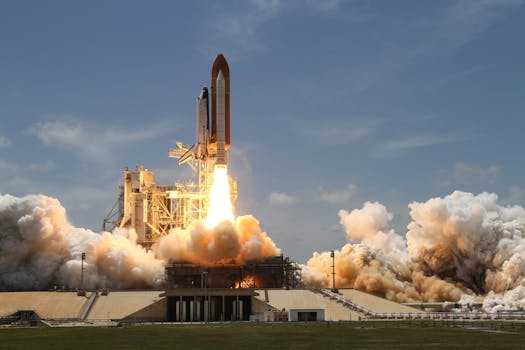
Middle East Crisis and Oil Prices: A Historical Analysis of Volatility and Market Impacts
The Middle East, a region brimming with vast oil reserves, has long been a geopolitical tinderbox. Its inherent instability significantly impacts global oil prices, creating volatility that ripples through global economies. Understanding the historical relationship between Middle Eastern crises and oil prices is crucial for investors, policymakers, and anyone concerned about energy security. This article delves into key historical events, analyzing how conflicts and political upheavals have shaped the oil market. We'll examine the impact of wars, revolutions, and sanctions on crude oil prices, exploring the complex interplay of supply, demand, and geopolitical risk. Keywords like oil price volatility, Middle East oil production, geopolitical risk oil, crude oil price forecast, OPEC oil production, and energy security will guide our exploration.
The 1973 Oil Crisis: The Yom Kippur War and its Lasting Legacy
The Yom Kippur War, a conflict between Israel and a coalition of Arab states in 1973, stands as a pivotal moment in understanding the connection between Middle Eastern instability and oil prices. The Organization of the Petroleum Exporting Countries (OPEC), led by Arab nations, imposed an oil embargo on nations supporting Israel. This embargo, coupled with production cuts, sent oil prices skyrocketing.
Impact: The price of oil quadrupled, triggering a global recession and sparking an energy crisis that reshaped global politics and economics. This crisis highlighted the vulnerability of the global economy to disruptions in Middle Eastern oil supplies. The event cemented the understanding of oil price shocks and their devastating consequences.
Long-term effects: The crisis spurred investment in alternative energy sources and energy conservation measures. It also led to the creation of the International Energy Agency (IEA) aimed at coordinating energy policies among member countries and responding to future supply disruptions. The energy crisis of 1973 continues to be studied as a prime example of how geopolitical events can significantly impact global markets.
The 1979 Iranian Revolution and the Iraq-Iran War: Prolonged Instability
The Iranian Revolution in 1979 and the subsequent eight-year war between Iran and Iraq (1980-1988) further destabilized the region and significantly impacted oil prices. Iran, a major oil producer, saw its production severely curtailed during both events. This disruption to supply, combined with escalating geopolitical tensions, led to sustained periods of high oil prices.
Impact: The combination of the revolution and the war created significant uncertainty in the market, leading to price spikes and volatility. The conflict highlighted the risks associated with investing in regions prone to political instability, underscoring the importance of factoring in geopolitical risk when analyzing oil markets.
Long-term effects: The prolonged conflict contributed to a broader sense of uncertainty in the global energy market, making investors more sensitive to geopolitical risks in the Middle East. The era also witnessed increased efforts to diversify oil supply sources to reduce reliance on a single region.
The 1990-1991 Gulf War: A Shock to the System
Saddam Hussein's invasion of Kuwait in 1990 triggered the first Gulf War, another dramatic event that sharply impacted oil prices. The invasion disrupted a significant portion of global oil production, resulting in a dramatic spike in oil prices. While the disruption was relatively short-lived compared to previous crises, the speed and magnitude of the price increase underscored the market's sensitivity to unexpected events in the region.
Impact: The swift price surge, fueled by fear of supply disruptions, demonstrated the potent influence of sudden geopolitical events on oil markets. The war showcased the need for robust emergency oil reserves and effective international cooperation in managing crises.
Long-term effects: The war highlighted the importance of international coalitions in addressing security threats in the oil-producing regions and the role of military intervention in securing vital energy resources. This event further solidified the link between Middle East conflict and global oil prices.
The Arab Spring and the Syrian Civil War: Ongoing Uncertainty
The Arab Spring uprisings of 2011, followed by the protracted Syrian civil war, demonstrated the ongoing instability in the region and its impact on oil markets. While not as dramatic as past events in terms of direct production disruptions, the uncertainty surrounding the conflicts added to existing geopolitical risks, contributing to price fluctuations.
Impact: The political turmoil created market uncertainty, influencing investment decisions and causing fluctuating oil prices. The instability also highlighted the importance of considering the broader geopolitical context when assessing oil market trends.
Long-term effects: The ongoing conflicts continue to add to the complex tapestry of factors influencing oil prices. The instability reinforces the need for diversified energy sources and strategies for mitigating the risks associated with volatile regions. Analyzing the impact of political instability in the Middle East requires understanding the intertwined nature of various conflicts and their collective impact on the global energy landscape.
Conclusion: Navigating the Future of Oil and Geopolitics
The historical relationship between Middle Eastern crises and oil prices is undeniable. Understanding past events is crucial for navigating the future. While the global energy landscape is diversifying, the Middle East remains a pivotal player, and geopolitical risks in the region will continue to impact global oil markets. By closely monitoring political developments, supply chain dynamics, and global demand, investors and policymakers can better prepare for future volatility and develop robust strategies for energy security. The ongoing relevance of understanding the impact of Middle East politics on oil cannot be overstated. Continuous analysis of the interplay between geopolitical events and market forces is essential in accurately forecasting crude oil prices and mitigating the risks associated with global energy supply.



















